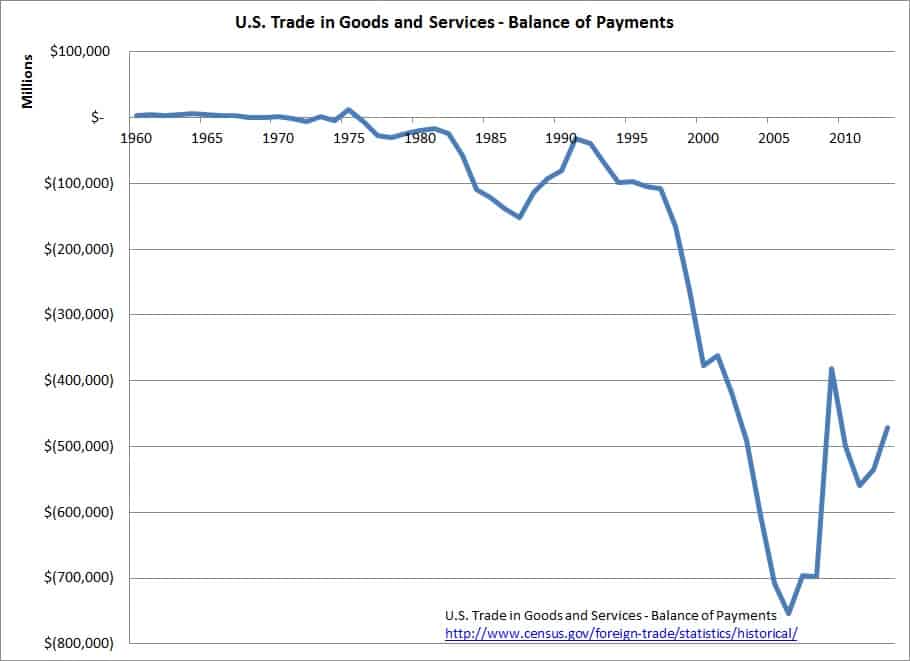Our enormous, humongous trade deficit hurts our economy; our budget deficit right now doesn’t. What would the result be if people were more worried about the trade deficit than the budget deficit? Fixing the trade deficit would mean more jobs, higher wages and a much, much better economy. It would also mean the wealthiest have less power over the rest of us.
Have you noticed that the results of the budget deficit scare all seem to work against regular people? Getting people scared of "government spending" has forced a reduction in the things government (We the People) do to make our (We the People) lives better. We have cut back on education (meaning poorer schools and higher student debt), fixing roads and bridges (meaning fewer jobs) and safety net programs (meaning more people fall into poverty). There are even attempts to cut Social Security and Medicare. At the same time the rich are getting vastly richer.
No wonder the push to scare people about budget deficits comes from special interests that represent the wealthiest.
Meanwhile we have an enormous, humongous trade deficit.

This trade deficit represents millions of lost jobs, and lower wages for the rest of us. These headlines tell the story:
- Growing U.S. trade deficit with China cost over 2.7 million jobs
- NAFTA’s Legacy: Growing U.S. Trade Deficits Cost 682,900 Jobs
- Trade gap with China costs the US $37 billion in wages
What would happen if the public was putting pressure on elected officials to do something about the trade deficit instead. In a November 2013 New York Times op-ed, "Taking Aim at the Wrong Deficit," Jared Bernstein and Dean Baker explain,
Simply put, lowering the budget deficit right now leads to slower growth. But reducing the trade deficit would have the opposite effect. Not only that, but by increasing growth and getting more people back to work in higher-than-average value-added jobs, a lower trade deficit would itself help to reduce the budget deficit.
Running a trade deficit means that income generated in the United States is being spent elsewhere. In that situation, labor demand — jobs to produce imported goods — shifts from here to there.
Here is a way to understand the cost of this enormous, humongous, ongoing and increasing trade deficit. The trade deficit is in the vicinity of $500 billion a year. Imagine the effect on our economy if companies that make and do things in the U.S. received $500 billion more in orders this year, and next year and again every year after that. Think about the people who would be hired, the factories and businesses (re)opening, the boom among suppliers and stores and everything else. Think about the boom in tax revenue that would help our schools and fix our roads. THAT is what the $500 billion trade deficit is – it's the loss of all of those jobs, businesses, higher wages and taxes.
The simple message: The trade deficit costs jobs. Please ask your elected officials and candidates what they plan to do to fix it.

